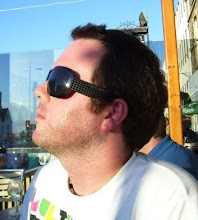
Image: Listverse.com
Outside property prices (also known as the inability for poor Hongkongers to live anywhere) a major social problem in this city is the prevalence of fake medicines. While the Far East may be better known for its region-wide plethora of counterfeit DVDs and handbags, dodgy pharmaceuticals are a far more lucrative industry with up to 100 times the profit to solve erection and obesity issues than films and fashion accessories – so says the South China Morning Post (SCMP) with some facts backed up by (South Africa's) The Daily Maverick.
Unfortunately, counterfeit pharmaceuticals carry a higher risk than other fake products as they can directly or indirectly kill people, yet the sentences for the trade of both sets of goods are pretty similar. Hong Kong, usually, does not screw around when it comes to prosecution sentencing: for example, shop lifting will earn you a ten-year trip to Lantau Island, which is lovely, but not from the inside of a cell housed in one of the three city jails there.
According to the SCMP, neighbour China is a proven producer of such fakery and unfortunately, Hong Kong is a transit point (it is the third largest shipping port in the world) and destination for these. Between January and the end of November 2010 Hong Kong customs confiscated over 55 000 pieces of merchandise valued at over HK$5 million and dished out fines and sentences to 24 companies (fines ranging from HK$1000 to HK$200 000 and sentences from 30 days to 2 years). Public opinion decrees this less of a deterrent than required, as the money to be made often exceeds that of drug shipments, with less risk.
The article from which I gleaned this info also says that people affected by fake drugs will struggle to sue as the law has set up a legal minefield with everyone able to blame someone else. It’s going to be like trying to get money back from an airline who cancelled your flight who blames the airport which blames the weather who blames the CAA for deciding when planes can and can’t take off. So legal recourse to nail the people who swing you fake drugs is virtually impossible.
(This is where I get to smile and brag now.) On 30 July last year, Mandy de Waal, writing for The Daily Maverick put together a piece about a Nigerian innovation through a company called mPedigree which helped patients to differentiate between fake medicines and real ones using an SMS-based system. While this may not nail perpetrators, forcibly stop the influx of fake medicines or offer compensation to victims, it does offer means to prevent false drugs from being ingested – thereby removing the problem entirely, should the solution be spread far enough and wide enough. If this SMS system is spreads successfully, everyone should be able to check their medicines against it and the market should therefore disrupt the success and profitability of illegitimate medication. The success of this system in Nigeria got to the point where now all medicine sold in the country must comply with this system. de Waal’s article says that it is now spreading into neighbouring countries with Ghana looking like the next to adopt it.
Goodbye fake medicine.
It’s nice to see Africa a step ahead, eh?
See:
South China Morning Post: Action on fake medicine does not go far enough (paywall)
The Daily Maverick: Fighting Africa's fake-drugs monster

No comments:
Post a Comment